Paulo Figueiredo
Summarization of Films and Documentaries Based on Subtitles and Scripts
Mar 09, 2016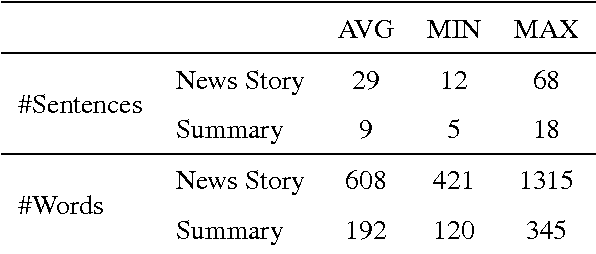
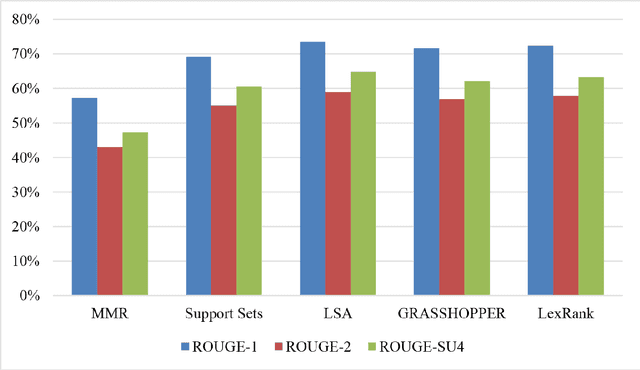
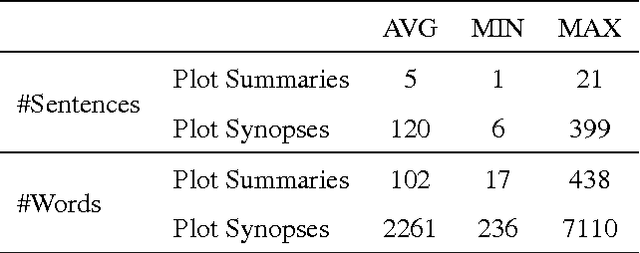
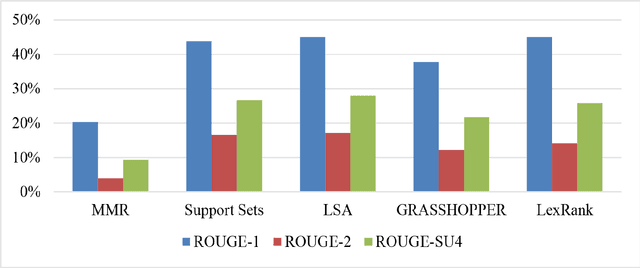
Abstract:We assess the performance of generic text summarization algorithms applied to films and documentaries, using the well-known behavior of summarization of news articles as reference. We use three datasets: (i) news articles, (ii) film scripts and subtitles, and (iii) documentary subtitles. Standard ROUGE metrics are used for comparing generated summaries against news abstracts, plot summaries, and synopses. We show that the best performing algorithms are LSA, for news articles and documentaries, and LexRank and Support Sets, for films. Despite the different nature of films and documentaries, their relative behavior is in accordance with that obtained for news articles.
* 7 pages, 9 tables, 4 figures, submitted to Pattern Recognition Letters (Elsevier)
Generation of Multimedia Artifacts: An Extractive Summarization-based Approach
Aug 13, 2015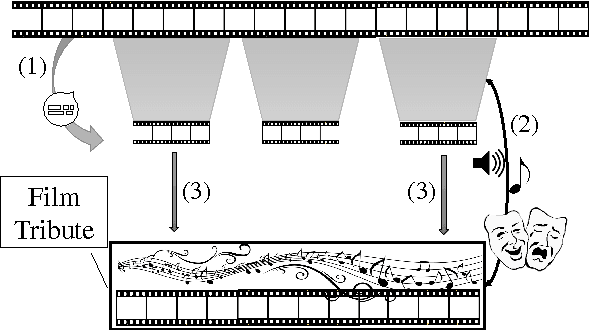
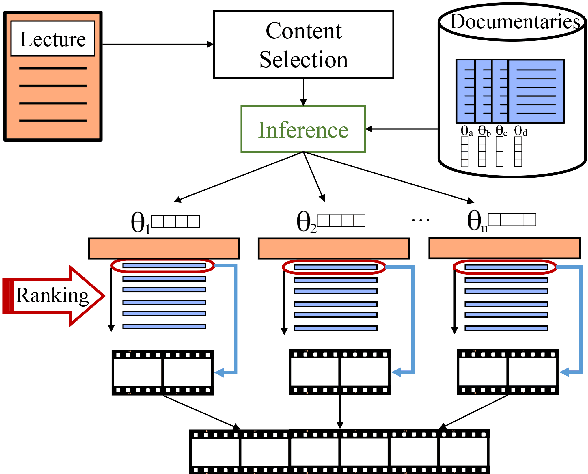
Abstract:We explore methods for content selection and address the issue of coherence in the context of the generation of multimedia artifacts. We use audio and video to present two case studies: generation of film tributes, and lecture-driven science talks. For content selection, we use centrality-based and diversity-based summarization, along with topic analysis. To establish coherence, we use the emotional content of music, for film tributes, and ensure topic similarity between lectures and documentaries, for science talks. Composition techniques for the production of multimedia artifacts are addressed as a means of organizing content, in order to improve coherence. We discuss our results considering the above aspects.
 Add to Chrome
Add to Chrome Add to Firefox
Add to Firefox Add to Edge
Add to Edge